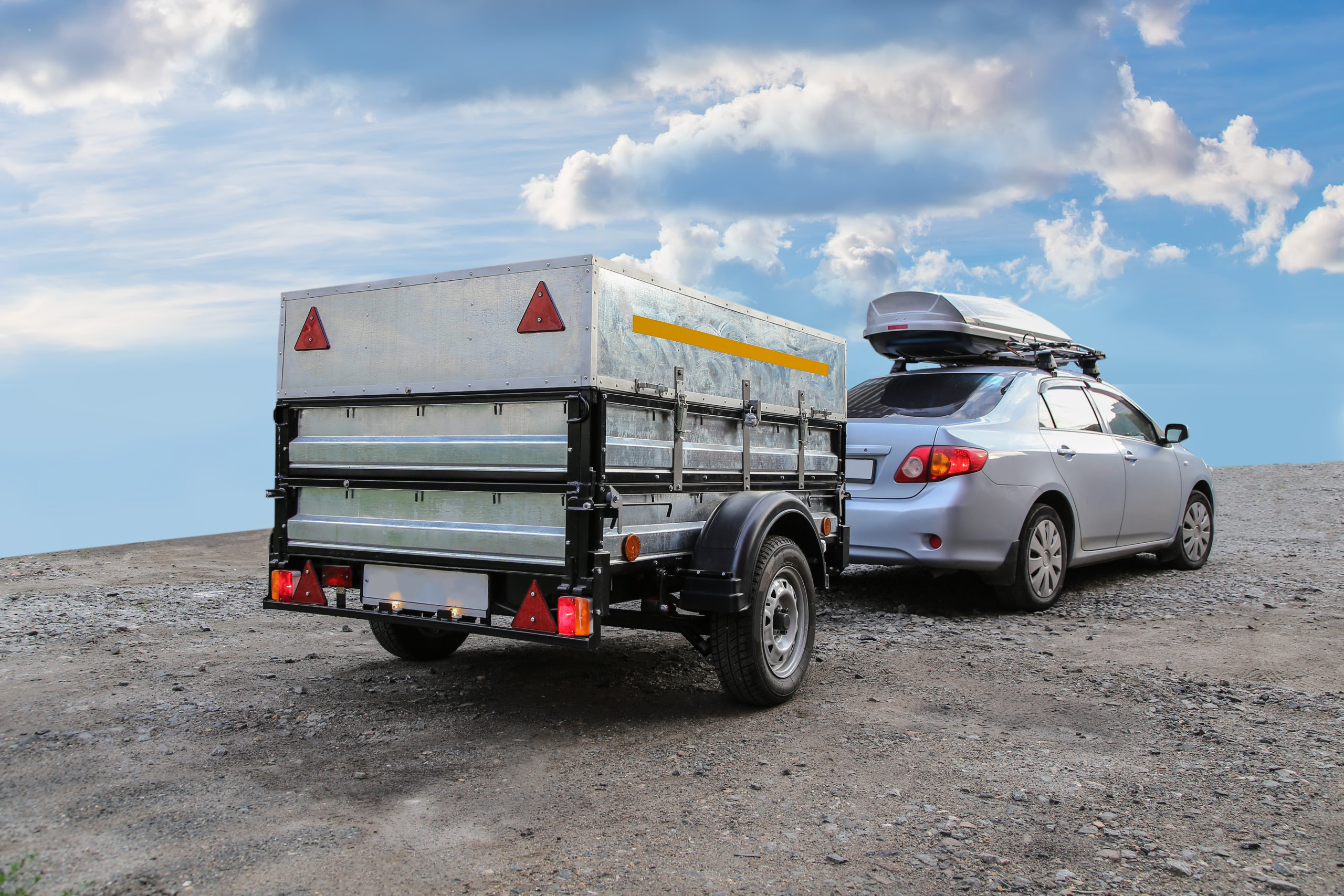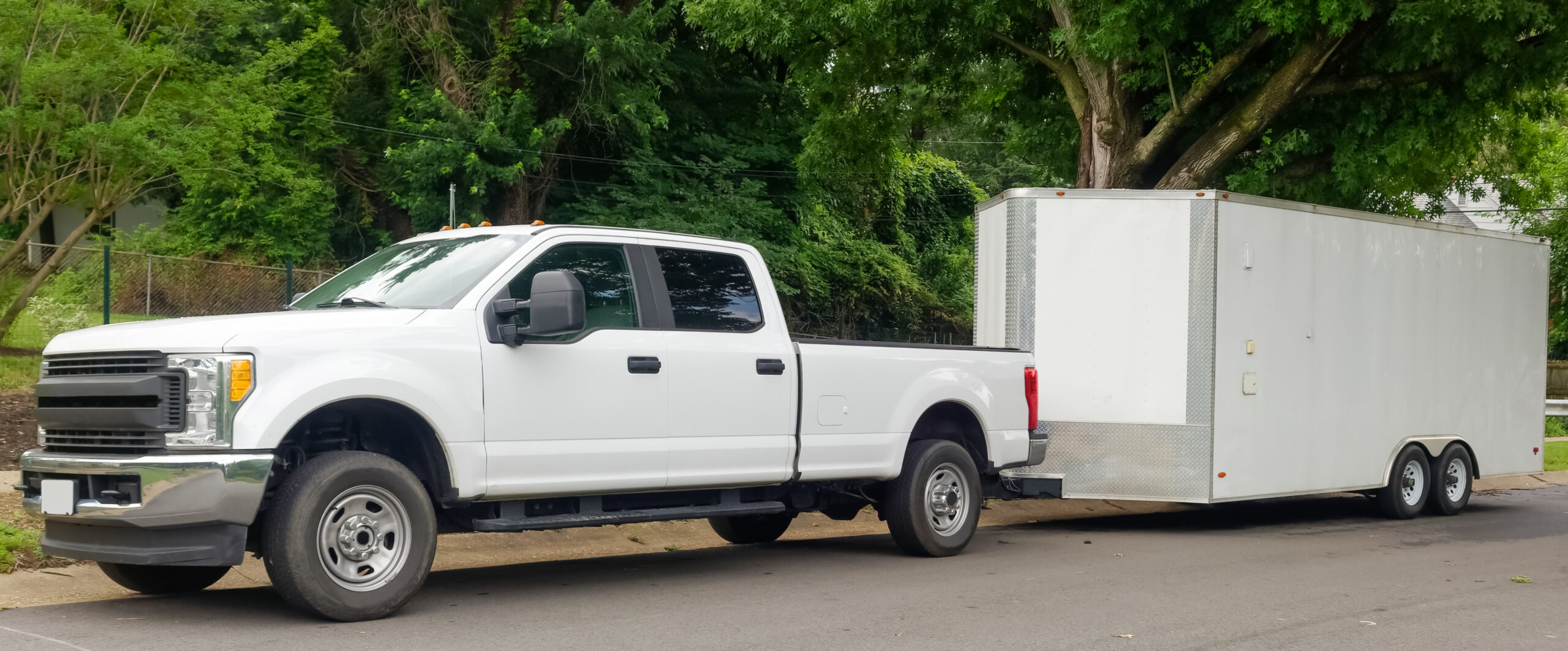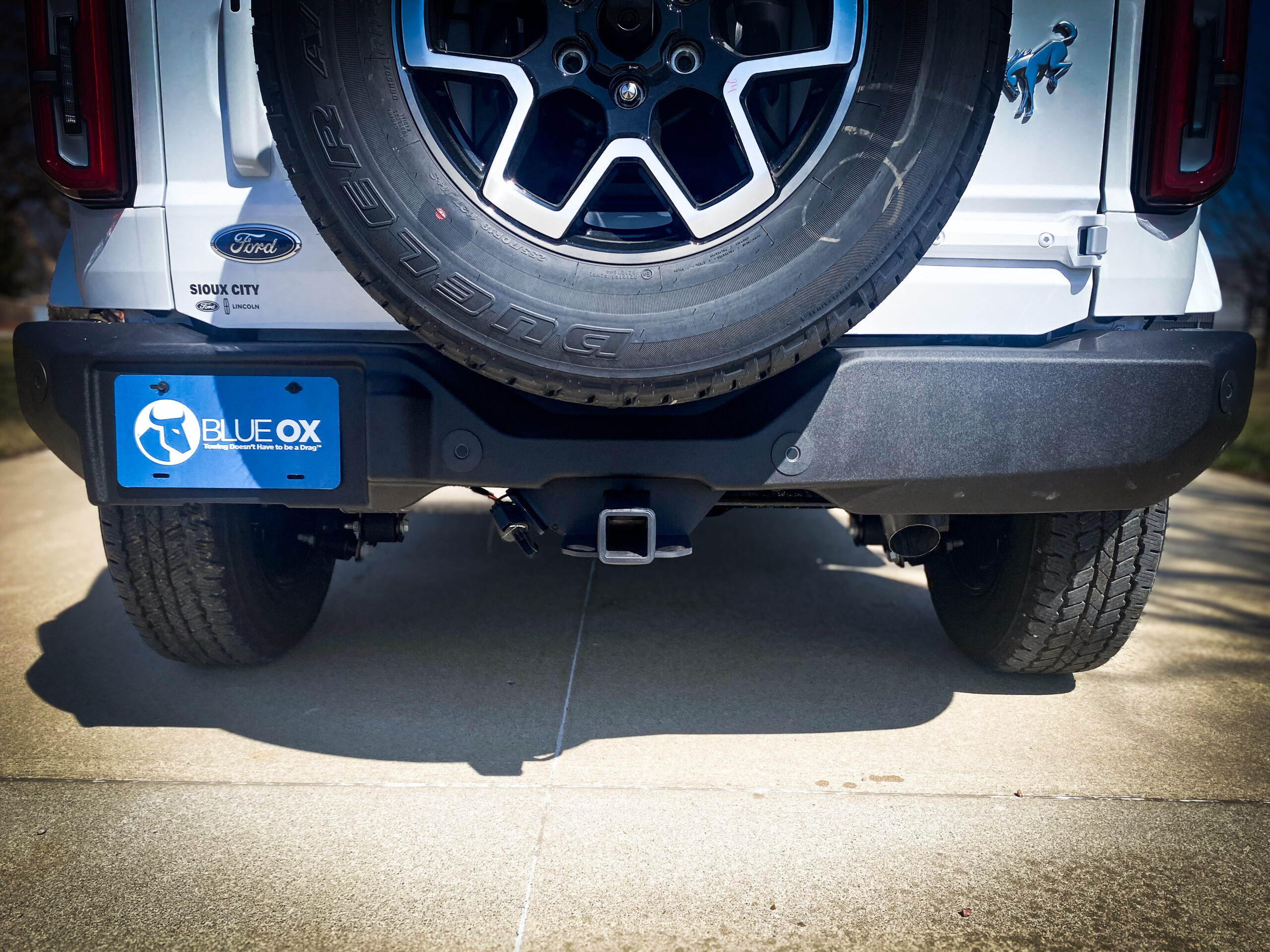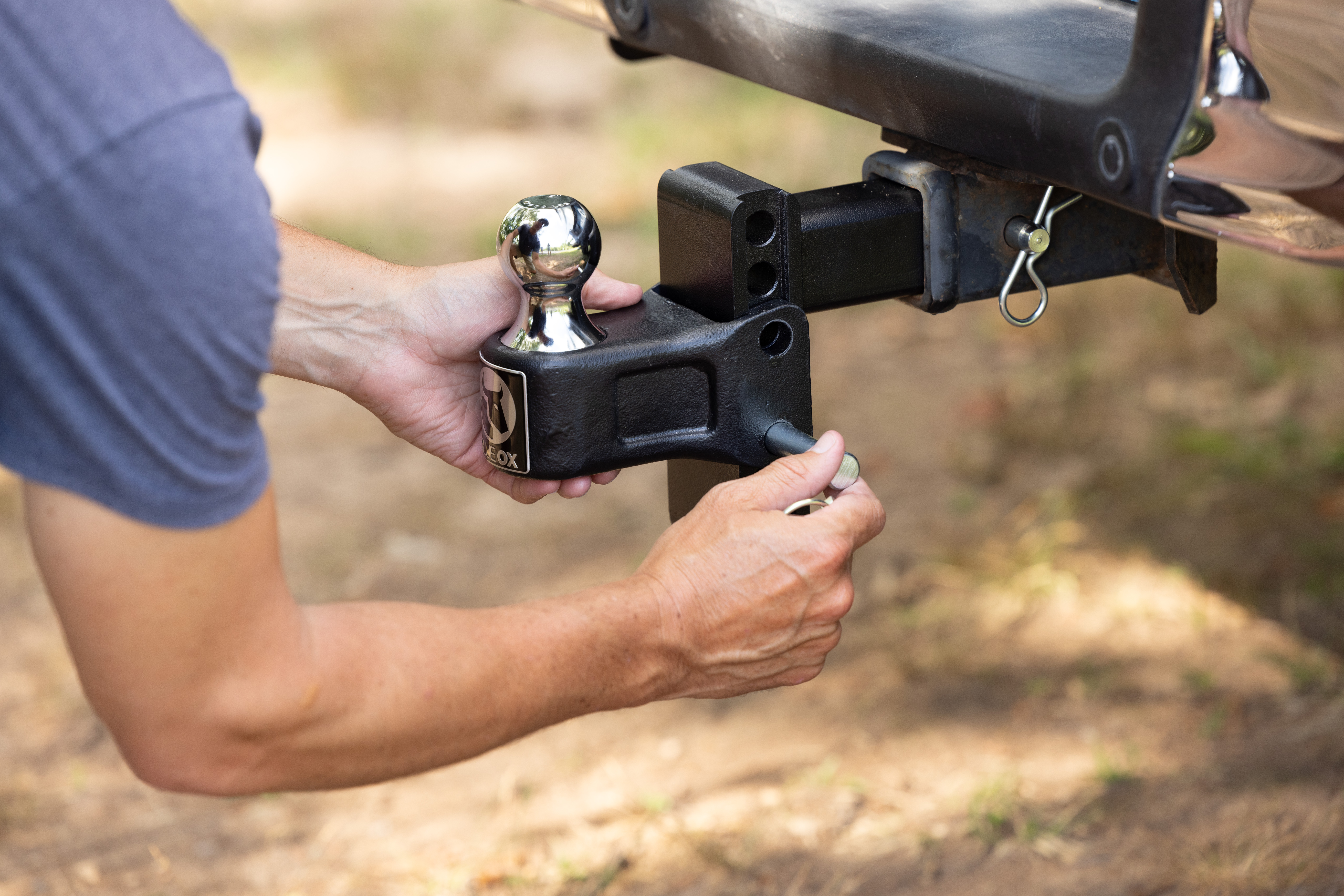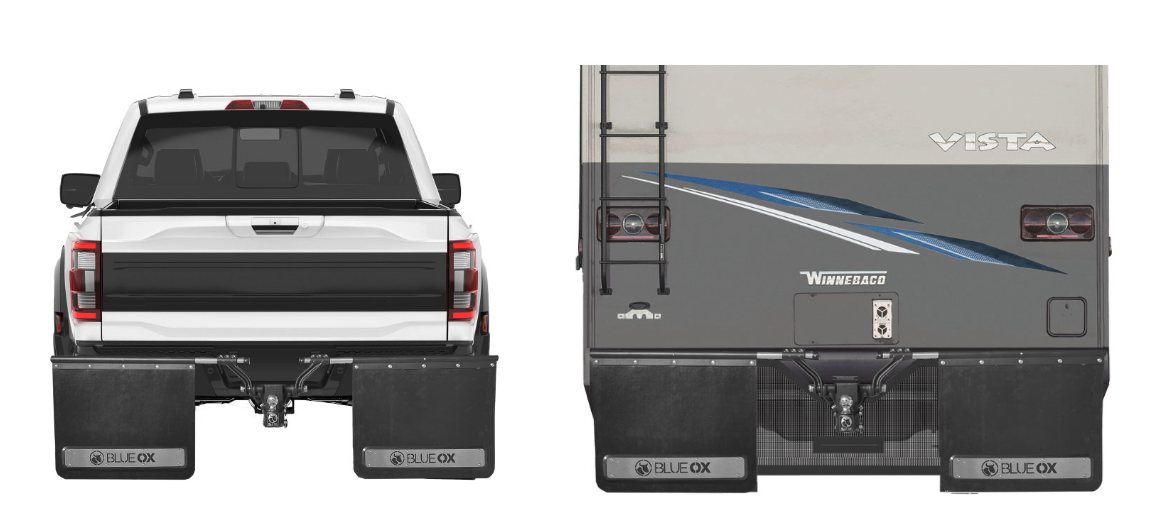Not all trailers are best for all towing scenarios. There are many variations in trailer size, shape, hitch, weight, and more than can have a significant impact on how well it handles behind your tow vehicle and how it behaves on the road. Using the right type of trailer for the job can help you tow safer and avoid accidents or damage to your vehicle, trailer, or cargo.
Conventional Trailers
Conventional trailers, also known as recreational trailers, generally use a ball hitch. These include things like campers and boat trailers. In most cases, the ball is mounted to a drawbar receiver that is attached to the vehicle’s chassis. For some lighter weight trailers, the ball may be mounted on a step bumper. Conventional trailers can usually be towed with smaller vehicles like an SUV, or mid-sized truck and drivers should install a weight-distribution hitch to prevent trailer sway. These kinds of trailers are generally easier to tow maneuver than larger trailers but don’t have as high of a max capacity.
Utility Trailers
Although utility trailers use a ball-type hitch as well, they are designed and constructed quite differently from conventional trailers. Their purpose is generally to move equipment, cargo, or other items so they are usually lighter and smaller than conventional trailers. The handling of a utility trailer can be tricky because less weight is placed over the trailer tongue and hitch, so having a weight-distribution hitch is key to reduce trailer sway. Loading a utility trailer properly is also important, keeping them front heavy to increase stability.
Gooseneck Trailers
It is hard to mistake the look of a gooseneck trailer. They get their name from the tall, long trailer tongues that come up and extend into the truck bed. This long trailer neck couples to a hitch ball mounted in the middle of the truck bed. Gooseneck trailers are usually quite large and are capable of hauling much heavier loads thanks to the placement of the hitch. With the gooseneck hitch being in the bed of the truck, the tongue weight of the trailer is placed over the rear axle instead of the end of the vehicle. This placement improves stability and handling, which would otherwise be quite challenging. You can take sharper turns with a gooseneck trailer hitch as long as you maintain a slow speed.
5th-Wheel Trailers
5th-wheel trailers are designed to carry very heavy loads and also feature a hitch placement in the center of the pickup bed. Similar to a semi-truck, you will find a horseshoe-shaped plate mounted within the bed. The kingpin on the trailer can then slide into the plate’s grooves and lock into place so the trailer can rotate on the plate. Towing a fifth wheel hitch requires a vehicle with a much higher towing capacity, but they can also be a little easier to maneuver than you might assume, thanks to the style of hitch coupling.
Safe Trailer Towing
Once you have chosen the right type of trailer for your towing needs and vehicle capacity, don’t forget to consider any additional equipment you may need to ensure safe towing. Conventional trailers and utility trailers are at a greater risk for trailer sway, so installing a weight-distribution hitch could really help you reach your destination safely. Because of the location of the ball mount, the trailer weight can affect the stability of your trailer and vehicle. If you come across a big gust of wind or pass a semi-truck, your trailer can be set into motion and sway out of control.
Get the Equipment You Need
Traveling safely is a top priority when towing a trailer. SwayPro can prevent trailer sway before it starts in any type of weather. SwayPro is the most user-friendly trailer sway prevention system on the market today. Once you have it installed, hook-up and disconnecting is also a breeze! Join the other 65% of vehicles on the road who trust the safety, quality, and durability of Blue Ox products. For questions about ordering a SwayPro or any other Blue Ox products, please contact our Customer Care team.

